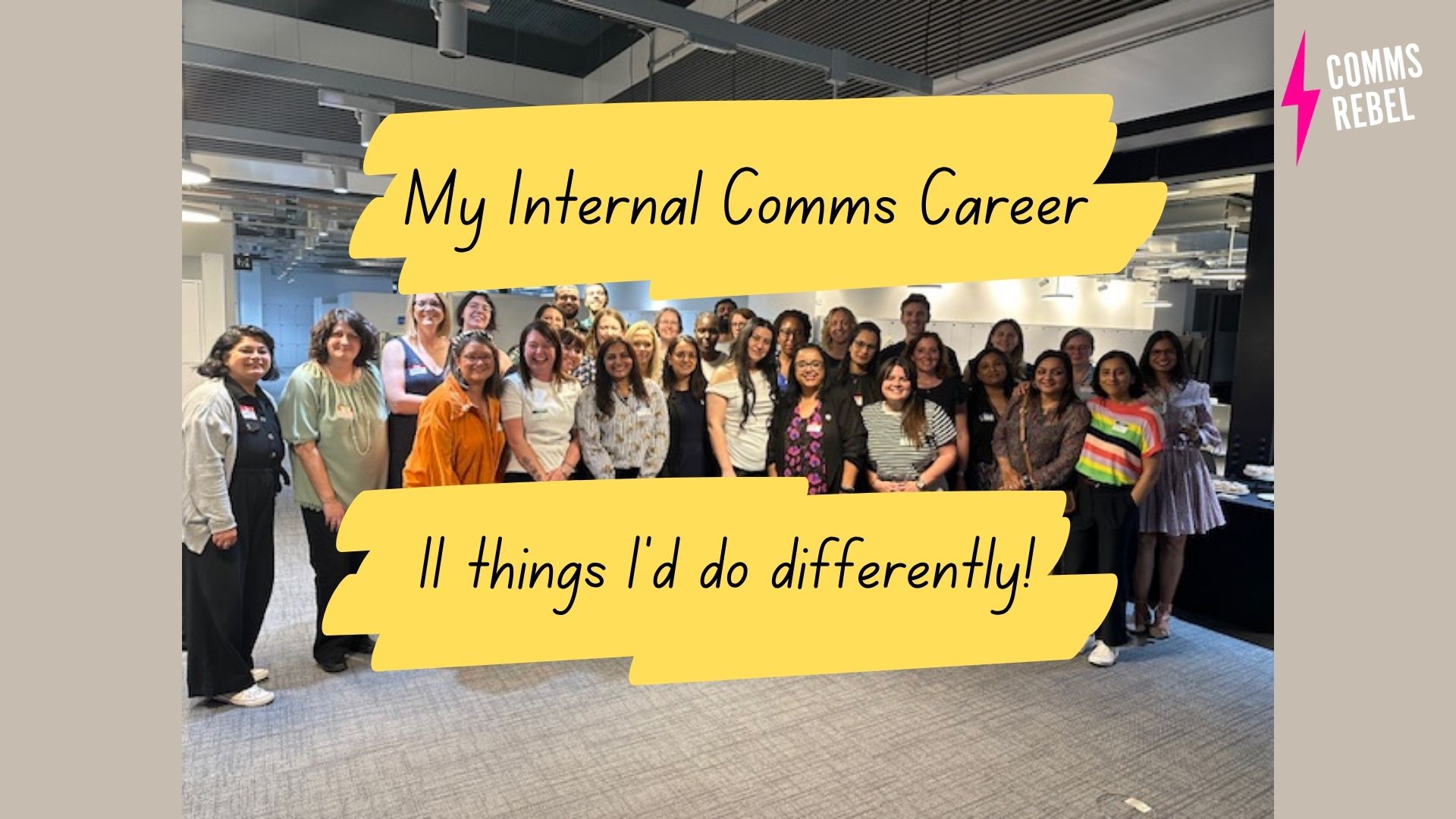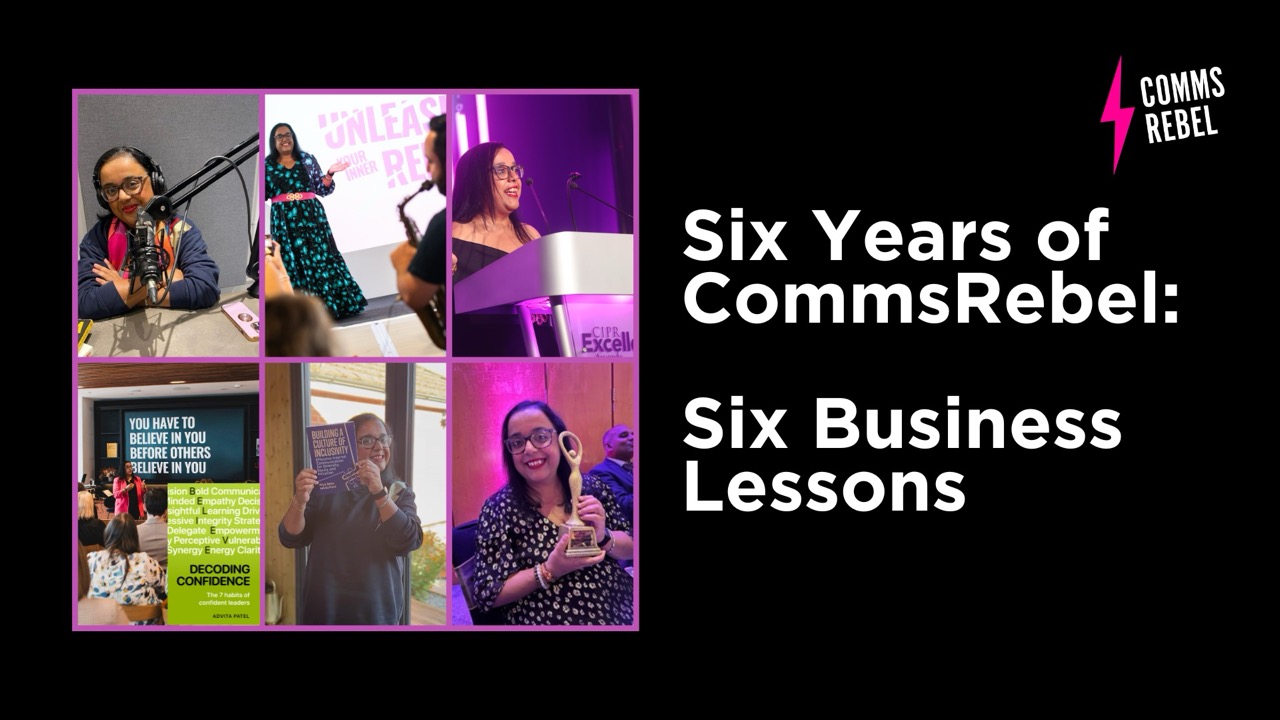I’ve worked in internal comms long enough now to have made plenty of mistakes, learned some tough lessons, and picked up a few gems of wisdom along the way.
So if I had the chance to go back and start my career all over again, I wouldn’t rewrite the whole journey, but I would do a few things differently.
And if you’re earlier in your IC career (or just fancy a reality check mid-way through), maybe some of these reflections will save you time, energy, or a few head-in-hands moments.
Here’s what I’d change and what I’ve come to believe really matters in internal communications.
1. I’d stop trying to make everyone happy
Because truthfully, someone will always complain.
Whether it’s the font, the timing, the tone, or the fact that you dared to communicate at all, someone, somewhere, will have an opinion.
And that’s OK.
Internal comms isn’t about pleasing everyone. It’s about serving your audience with clarity, empathy and relevance. You’re helping people understand, connect and act.
2. I’d learn to say “no” without writing an essay
In the early days, I thought I had to justify every decision, every decline, every boundary.
I’d write long, over-explained emails trying to soften the word no.
Now? I say it kindly and clearly.
Not everything is a comms emergency. Not every idea needs a full campaign. And you don’t owe everyone a three-paragraph rationale. Boundaries keep you effective, so use them!
3. I’d stop treating town halls like a Glastonbury production
I used to pour hours into making all-hands meetings “perfect” – slides, themes, production value, the lot.
But most of the time, people just want to know what’s going on, how it affects them, and what’s next.
It doesn’t need lasers and confetti. It needs clarity and purpose.
If your energy’s limited (and let’s be honest, it is), put it into the message, not the stage show.
4. I’d stop obsessing over getting a “seat at the table”
For a while, I thought influence meant being invited into big meetings or sitting next to the CEO.
But I’ve learned that real influence doesn’t always look like a boardroom.
It looks like relationships. Trust. Credibility. Insight. Quiet nudges that change thinking. Honest feedback that shapes strategy.
And sometimes, influence means bringing your own chair and building your own table.
5. I’d get comfortable with data sooner
Because nothing shuts down a long-winded opinion quite like: “Here’s the evidence.”
Once you learn to track what’s working – open rates, intranet engagement, behaviour change, feedback loops – you move from guesswork to credibility.
Data builds confidence. Use it to back your ideas, challenge assumptions, and shift conversations.
6. I’d spend even more time with frontline colleagues
If you want to know how things really land, speak to the people doing the work.
Not the ones writing the strategy. The ones actioning it. Every comms professional should spend time on the floor, in the field or wherever frontline teams are based.
You’ll hear insights you won’t get in a leadership meeting. You’ll spot gaps in understanding, language and tone. And you’ll remember why this work matters.
7. I’d ditch the 40-page comms plans
No one reads them. Ever.
Now, it’s always a plan on a page. Simple, sharp, focused.
A good plan doesn’t live in a folder. It’s something you can talk to, adjust, and share in under 10 minutes.
If you can’t explain it clearly, it’s probably too complicated.
8. I’d invest in my own development earlier
For too long, I waited for a budget. Or permission. Or a training request to be signed off.
The truth is, your professional growth is your responsibility.
Read the books. Sign up for the webinars. Join the communities. Get a coach. Back yourself.
The earlier you start, the quicker you learn and the more confident you’ll feel making strategic decisions later on.
9. I’d get to know the business better, and faster
You don’t need to be an industry expert on day one. But if you want to be taken seriously, you do need to understand the business.
How it makes money. Where the pressure points are. What keeps leaders awake at night.
Internal comms doesn’t live in a vacuum. The more commercial awareness you have, the more impact your work will have and the more likely you are to be seen as a strategic partner.
10. I’d treat feedback as intel, not an attack
Feedback used to sting. I’d take it personally, overthink it, question my worth.
Now, I see it as information.
People are projecting their stress, expectations, preferences, and sometimes their own insecurities. That doesn’t make their feedback invalid, but it does mean you don’t have to internalise it.
Take what’s useful. Leave the rest.
11. I’d take more creative risks
The safe stuff is forgettable.
It’s tempting to play it safe when you’re juggling multiple stakeholders, limited time, and a fear of getting it wrong.
But the comms that land? The ones people remember? They’re the ones that make you feel something. Try something different and take a bit of a leap.
Creativity builds connection. Don’t play so small that no one notices.
Hindsight is helpful. But learning is better.
What would I tell my younger self?
- Back yourself sooner.
- Ask better questions.
- Don’t wait to be invited.
- And remember, the work you do matters.
You don’t need to be perfect. You just need to be intentional. Keep learning, stay curious, and don’t lose sight of why you started. What would you tell your younger self?
Want help building confidence and influence in your internal comms career? I offer one-to-one coaching and team development for comms professionals who want to grow, without burning out. Book in a free discovery call. Alternatively, check out our Services to see other ways we can work together to build more confident workplaces through effective internal communications.
PS. If you enjoyed reading this, check out Reclaiming Your Voice.


